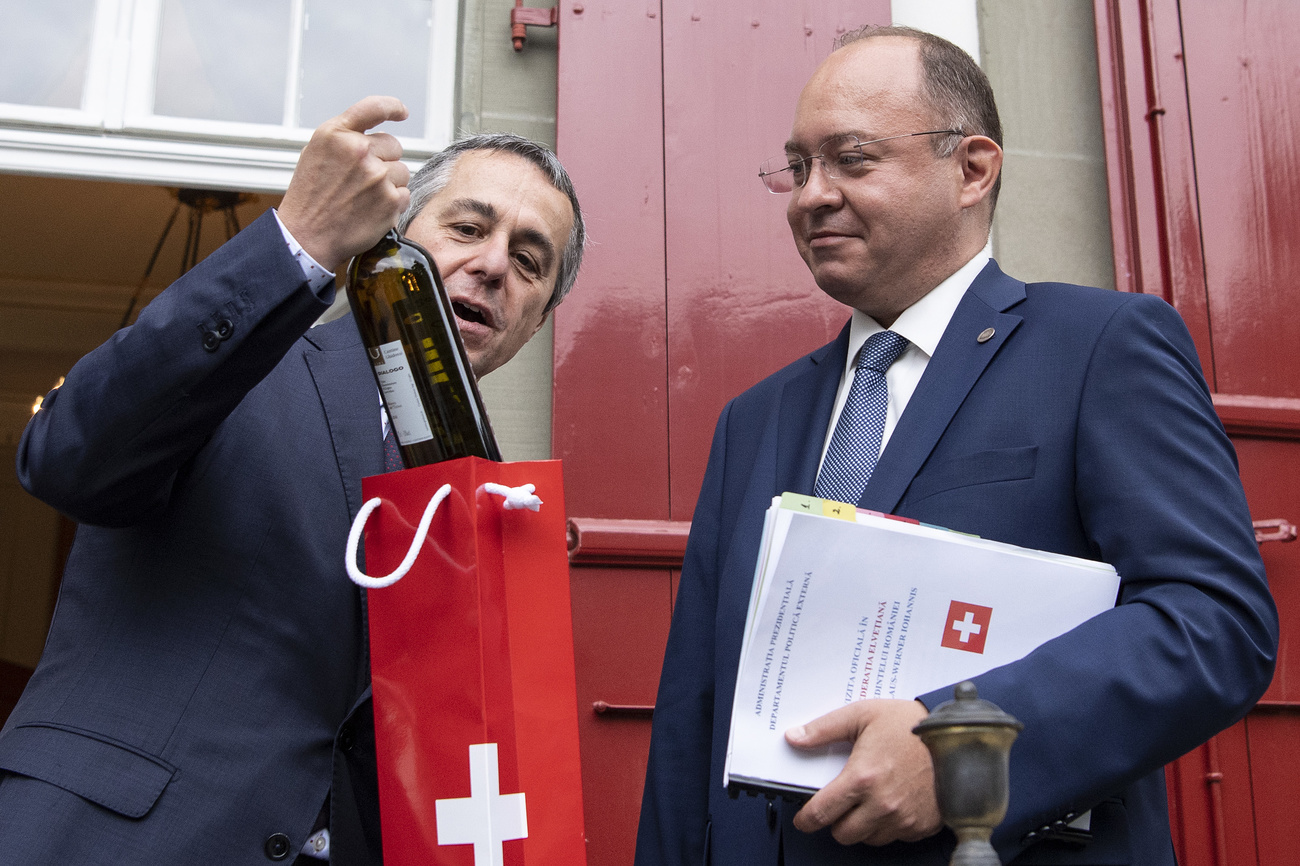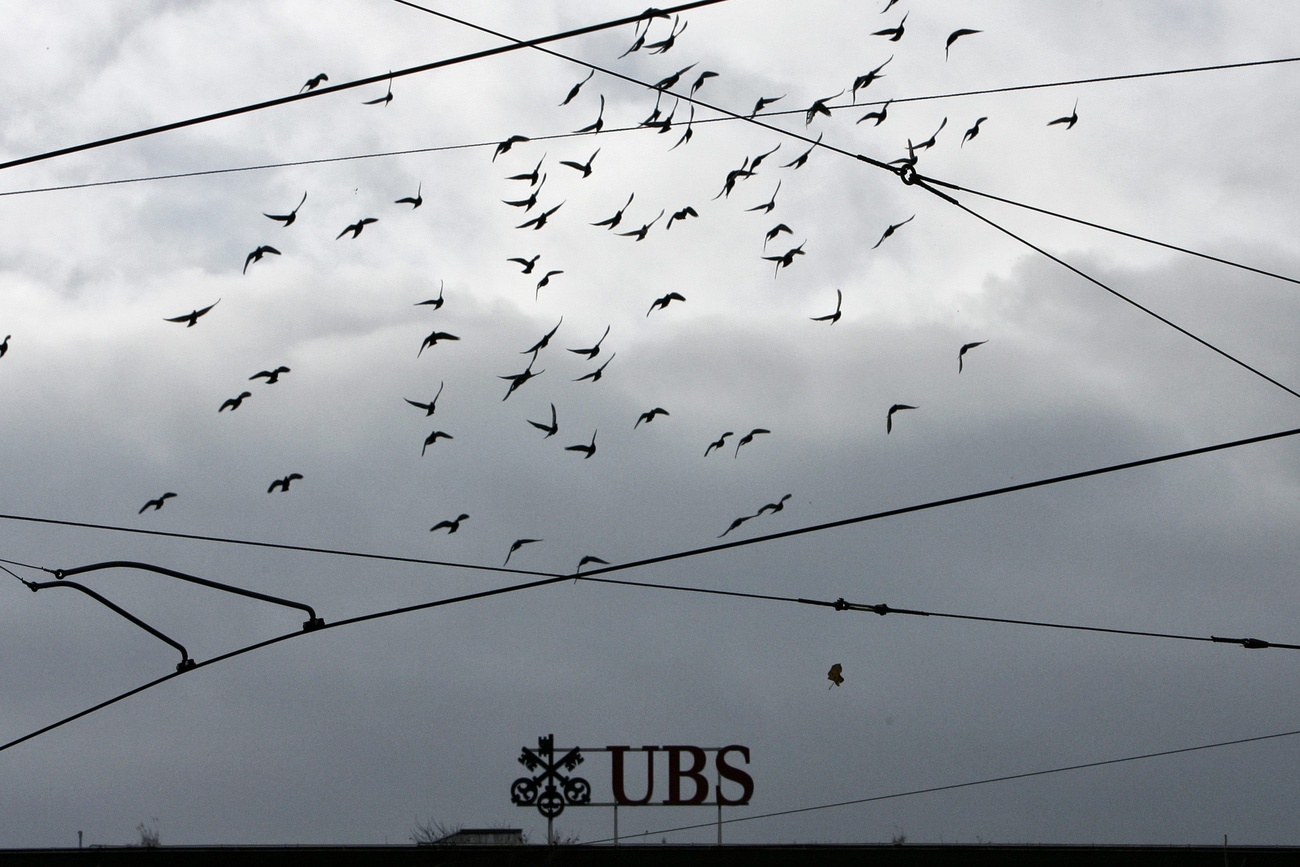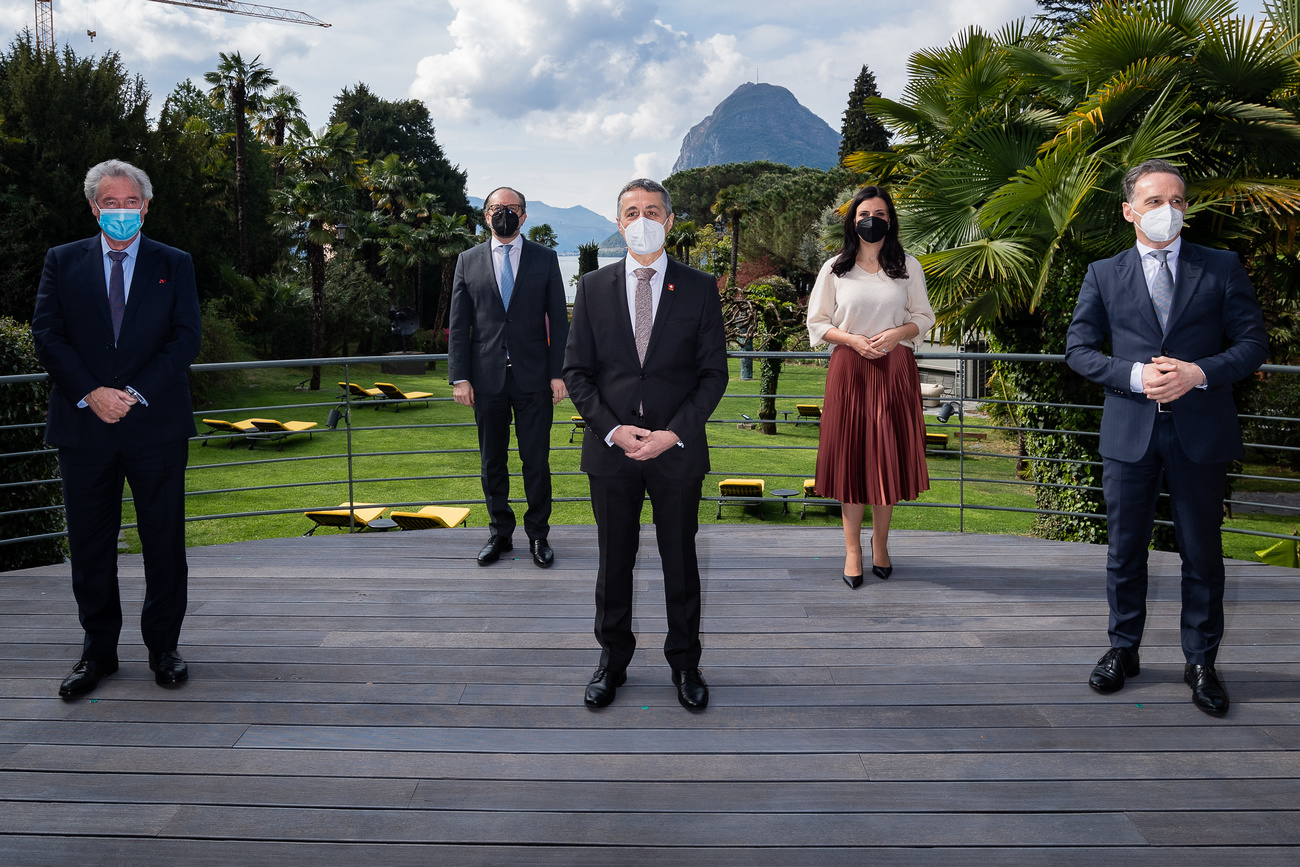
Swiss foreign policy: the end of privilege

For many years Switzerland was able to increase its prosperity discreetly under the cover of neutrality. That’s not so easy in today’s shifting geopolitical landscape.
Neutral Switzerland kept trading with South Africa even after the United States, Japan and the European Community tried to bring the apartheid regime to its knees with economic sanctions in 1986.
After the United Nations and the US slapped an arms embargo and economic sanctions on Iran’s mullah regime to prevent it from building a nuclear bomb in 2007, Switzerland actually increased its trade with Iran. And while Switzerland advanced the cause of democracy and the rule of law in the global South, dubious despots found a safe place for their ill-gotten gains in Swiss bank accounts.
With “good offices”, the humanitarian tradition, neutrality, and International Geneva, Switzerland was able to present itself as a tireless worker for peace in the world. In the background it discreetly advanced its own interests and those of Swiss business and industry. That is how the critics see it.

Neutrality, understood as “we do business with everybody, and ignore all sanctions” is one factor that propelled Switzerland to global dominance as a commodity trading hub, besides its finance industry and taxation policy, writesExternal link Andreas Missbach, who heads Alliance Sud, a coalition of Swiss NGOs.
A trickier international scene
According to Elisabeth Schneider-Schneiter of the Centre Party, Switzerland enjoyed many privileges as a result of its neutrality in the past. Yet, she says, “the privileges are eroding”.
Under international pressure – especially from the US – Switzerland was forced to clean up its financial industry. It had to get rid of banking secrecy to a great extent. It had to sign up for automatic information exchange with other states to detect tax evaders.

The rather prickly relationship between Switzerland and the European Union these days reflects the changes that have taken place. “With the bilateral treaties, Switzerland was long able to make money on the internal European market, without having to fulfil the duties that that market required,” says Schneider-Schneiter. In Brussels there was often talk of “cherry-picking”. Those days are now over, says Schneider-Schneiter. Even the country’s low corporate tax is now in jeopardy thanks to the OECD’s insistence on a minimal tax on corporate profits of 15%.
The sense that the international environment has radically changed is shared by Green Party foreign policy spokesperson Christine Badertscher. “The EU does not want to be granting exceptions to Switzerland,” she says. Badertscher considers the troubled relationship with the EU to be the main obstacle to Switzerland’s continued prosperity.
Developments within the European bloc itself are also taking a toll on Swiss business. For example, Switzerland is quietly lobbyingExternal link in Brussels to get a proposed financial market reform watered down. The EU’s tightening of control on cross-border banking activity started out as a response to Brexit. But it could also hit Swiss banks managing wealthy Germans’ money.
Russia’s invasion of Ukraine has also led to a hardening of attitudes towards Switzerland. Some European countries are indignant at Bern’s refusal to allow arms and ammunition that had been bought from the Swiss to be passed on to the Ukrainians. Switzerland appeals to its neutrality and national law to justify this unyielding position. Meanwhile, German politicians have been threateningExternal link to stop buying armaments from Switzerland altogether.

More
Switzerland refuses to budge on German ammunition request
Flying under the radar
China, Russia, Iran – autocratic states stick together, even on Russia’s Ukraine invasion. Many pundits are talking about a new bloc and a new Cold War.
Patrick Dümmler from the pro-business think tank Avenir Suisse believes that Switzerland will have to take sides – “more than before, and definitely more that we would like”.
Switzerland sees itself and is perceived by others as part of the Western alliance. Dümmler thinks the country can no longer fly under the radar and make deals with everybody. “Our foreign economic policy is being watched by the US and the EU and they expect us to stand with them.” Previously there was no such pressure, and Switzerland was able to play its own game, always claiming to be neutral.
Sanctions hit Swiss prosperity
In the case of the Ukrainian war, Switzerland presents itself as putting noble ideals before its own prosperity. It aligned with EU sanctions against Russia, after careful deliberation.
Switzerland was forced to take sides, according to Dümmler. “The country will continue to uphold the sanctions or run the risk of being subjected to economic reprisals,” he says.
Gerhard Pfister, the leader of the Centre Party, has been telling the mediaExternal link that Switzerland will have to cope with a decline in national prosperity. Sanctions, retaliation by the sanctioned, loss of trading relations – all come at a cost.

More
Switzerland shouldn’t count on its ‘best friends’ for EU help
The sanctions seem to have become a bone of contention in federal government circles. Yet if the foreign ministry is to keep up good relations with our most important trading partners, Switzerland has to fall into step with the EU and the US. Even when it comes to sanctions, which are not to the liking of Swiss business.
The foreign ministry has a prosperity and sustainability team. The department’s head, Alexandra Baumann, does not see Switzerland’s prosperity as being directly threatened by sanctions. In an interview she told SWI swissinfo.ch prosperity depends above all on the right framework conditions. “We are working for a stable financial system and the best relations possible with other countries,” she says.
The pandemic, the energy crisis and inflation have shaken other European countries and led to considerable upheaval there. Switzerland remains economically and politically untroubled to a surprising extent. Instead of appealing to privileges like neutrality and special status, Switzerland could play a different trump card: its stability.
Translated from German by Terence MacNamee; edited by Balz Rigendinger.

In compliance with the JTI standards
More: SWI swissinfo.ch certified by the Journalism Trust Initiative































You can find an overview of ongoing debates with our journalists here . Please join us!
If you want to start a conversation about a topic raised in this article or want to report factual errors, email us at english@swissinfo.ch.